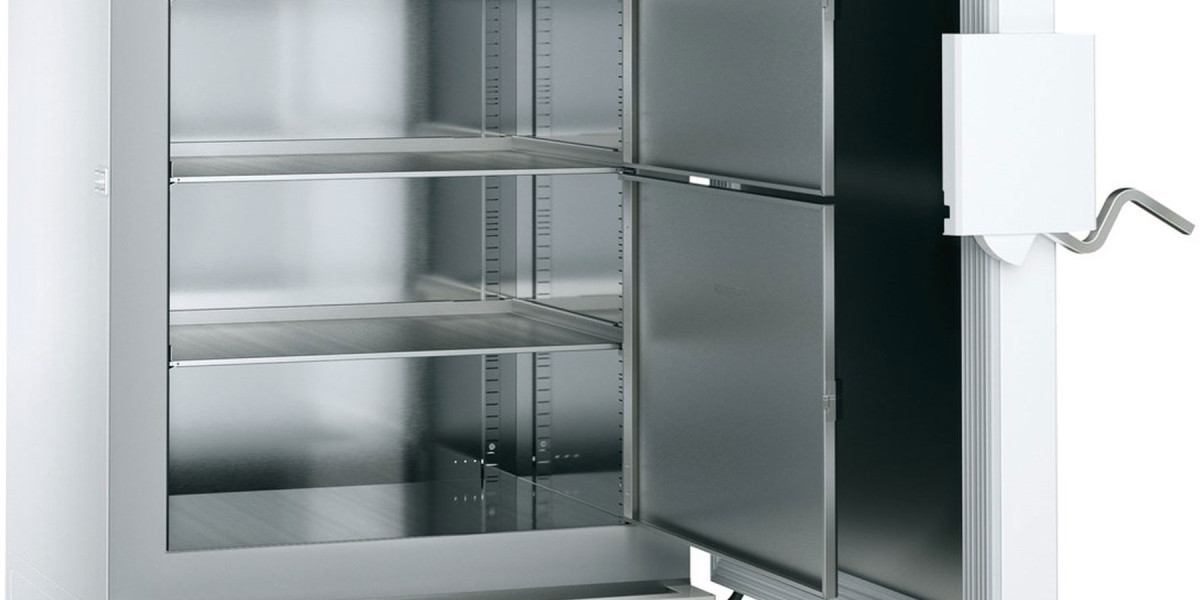The carbon dioxide (CO₂) incubator market has become increasingly vital in various sectors, including biotechnology, pharmaceuticals, and research laboratories. The demand for CO₂ incubators is driven by several interrelated factors, including advancements in medical research, the growth of the biopharmaceutical sector, and an increasing focus on quality control in laboratory environments. Understanding these demand drivers is crucial for stakeholders aiming to navigate this dynamic market effectively.
Rising Interest in Biopharmaceuticals
One of the most significant contributors to the growing demand for CO₂ incubators is the rising interest in biopharmaceuticals. As the industry expands to meet global healthcare needs, biopharmaceutical companies rely on CO₂ incubators for culturing mammalian cells essential for producing vaccines, therapeutic proteins, and monoclonal antibodies. These incubators provide the precise environmental conditions necessary for cell viability and productivity, making them indispensable tools in biopharmaceutical development. The continuous evolution of the biopharmaceutical landscape ensures that the demand for CO₂ incubators will remain robust.
Advancements in Cell Culture Technologies
The demand for CO₂ incubators is also influenced by advancements in cell culture technologies. With the development of new techniques and protocols, researchers require incubators that can offer more than just basic temperature and CO₂ control. Modern CO₂ incubators are now equipped with advanced features such as real-time monitoring, automated control systems, and enhanced data management capabilities. These innovations allow researchers to optimize their workflows, reduce human error, and maintain consistent environmental conditions, all of which are critical for successful cell culture experiments. As researchers seek to adopt these cutting-edge technologies, the demand for sophisticated CO₂ incubators is expected to rise.
Increased Research and Development Activities
The heightened focus on research and development across various fields, particularly in life sciences and healthcare, is a key driver of demand for CO₂ incubators. Governments, academic institutions, and private organizations are investing heavily in R&D to develop innovative solutions for pressing health issues. This investment translates into a growing number of laboratories and research facilities that require reliable and efficient CO₂ incubators. The surge in R&D activities, particularly in regenerative medicine and stem cell research, further emphasizes the need for high-quality incubators that can provide controlled environments for various cell types.
Focus on Quality Control and Regulatory Compliance
As laboratory environments become more regulated, there is an increasing emphasis on quality control in research processes. Regulatory agencies demand rigorous documentation and adherence to established protocols to ensure the reliability of experimental results. CO₂ incubators play a crucial role in maintaining the quality of cell cultures by providing stable and controlled conditions. The growing need for compliance with stringent quality standards and regulatory guidelines drives demand for reliable and precise incubators. Laboratories are more inclined to invest in advanced CO₂ incubators that can support their quality control efforts and help them meet regulatory requirements.
Customization and Versatility
The demand for customization and versatility in laboratory equipment is another factor contributing to the growth of the CO₂ incubator market. Different research applications require different environmental conditions, and researchers are increasingly looking for incubators that can be tailored to their specific needs. Modern CO₂ incubators are being designed with customizable features, such as adjustable humidity levels, CO₂ concentrations, and temperature controls, allowing researchers to create optimal conditions for a wide range of cell types and applications. This ability to customize incubators enhances their appeal, further driving demand in the market.
Sustainability Considerations
Sustainability is becoming a priority for many laboratories, prompting a shift in purchasing decisions towards eco-friendly equipment. Laboratories are increasingly looking for CO₂ incubators that incorporate energy-efficient technologies and sustainable materials. The demand for environmentally responsible laboratory equipment is likely to continue growing as organizations strive to reduce their environmental impact. Manufacturers that can offer energy-efficient CO₂ incubators will likely find a receptive market among environmentally conscious customers.
Emerging Markets and Globalization
The globalization of research initiatives and collaborations has also increased demand for CO₂ incubators. As scientific inquiry extends beyond borders, researchers require equipment that meets diverse regulatory standards and can operate in various environmental conditions. This globalization encourages manufacturers to develop incubators that comply with international guidelines, allowing for easier integration into global research projects. The ability to cater to a wider range of markets enhances the visibility and competitiveness of CO₂ incubator manufacturers.
In summary, the demand for carbon dioxide (CO₂) incubators is driven by various factors, including the rise of biopharmaceuticals, advancements in cell culture technologies, increased research and development activities, and a focus on quality control. Customization, sustainability, and globalization further enhance this demand. As the market continues to evolve, stakeholders must stay attuned to these dynamics to capitalize on opportunities and meet the growing needs of the scientific community. The future of the CO₂ incubator market appears promising, driven by innovation and an unwavering commitment to advancing research and healthcare solutions.








